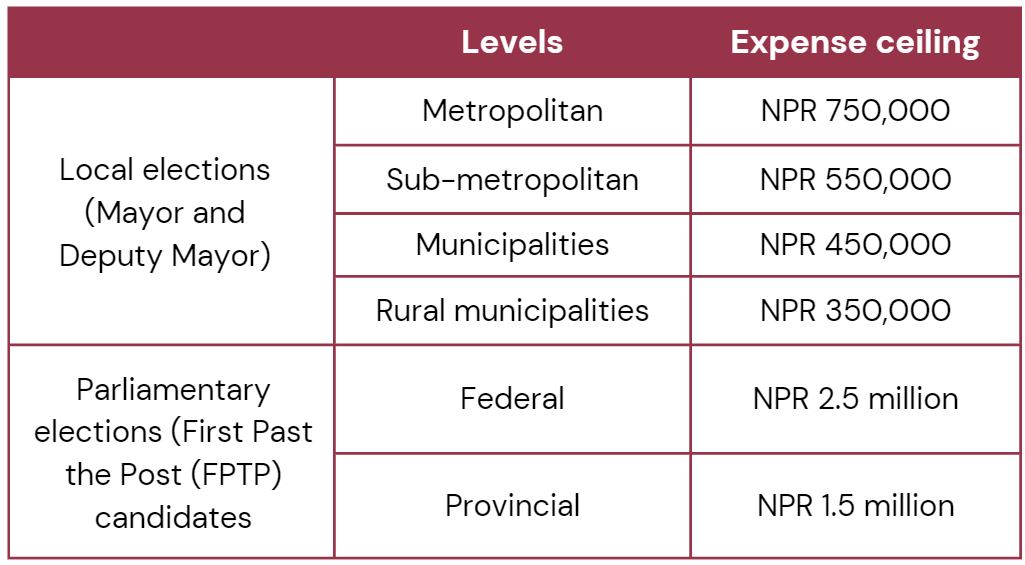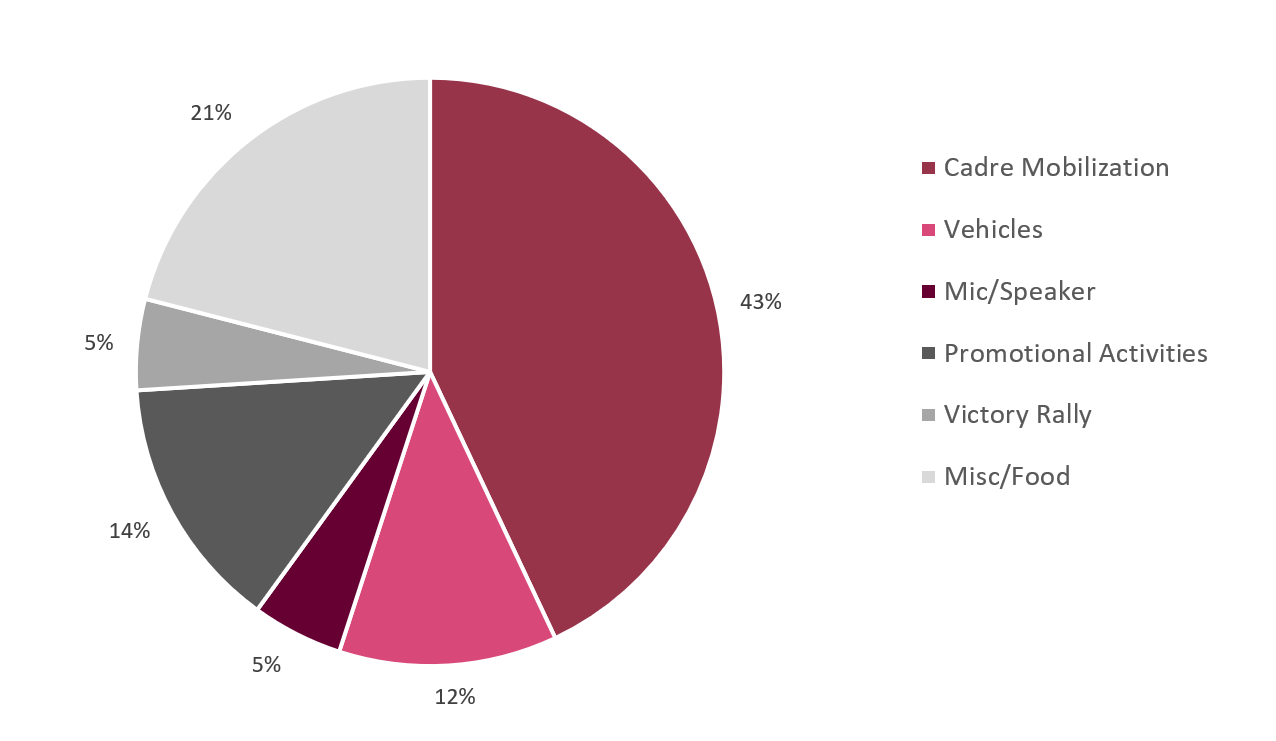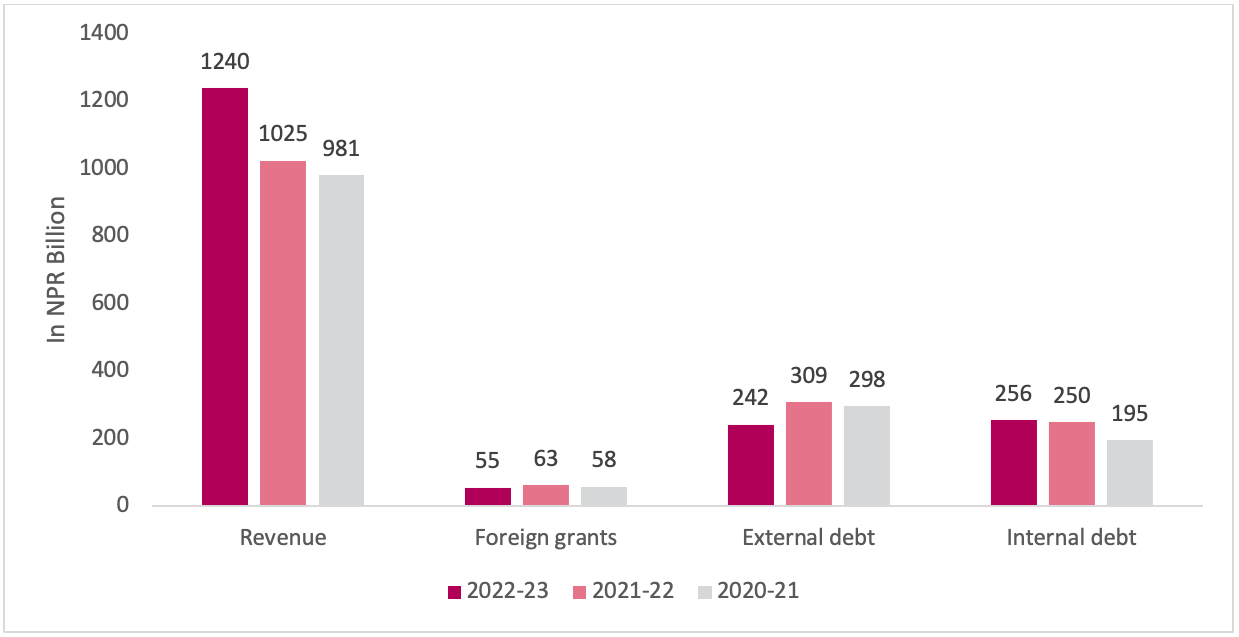Despite the significant costs, elections should be treated as a public investment, one that ensures democratic decision-making.
Elections are one of the most fundamental components of democracy. For a country like Nepal, where elections perpetually got disrupted due to political instability and frequent regime changes, elections become crucial and a reminder of the will of the people in selecting governments and holding them accountable.
The Constitution promulgated in 2015, converted Nepal into a federal democratic republic and provisioned for parliamentary and local level elections to be held every 5 years. For the second election season since the promulgation of the Constitution, the local level elections were completed in May 2022, while the parliamentary elections are to be held on 20 November 2022. Amidst high inflation and depleting foreign reserves, there are concerns over whether the economy of Nepal has the capacity to fund the cost of these elections.
Estimated Costs of Elections
Government
In 2017, NPR 11.28 billion (USD 88.58 million) was allocated to the Election Commission (EC) during the local elections for security management, mobilization of manpower, voter education, and logistic arrangements, of which only NPR 7.03 billion (USD 55.21 million) was spent. Similarly, for the federal and provincial elections, NPR 9.7 billion (USD 76.18 million) was allocated to the EC, out of which only NPR 6.41 billion (USD 50.34 million) was spent.
The 2022 local elections have been projected to be one of the most expensive to date with a budget set at NPR 8.11 billion (USD 63.7 million) for the Election Commission, of which NPR 5.43 billion (USD 42.22 million) has been spent. The Election Commission is budgeted to spend NPR 12.2 billion (USD 95.8 million) and the Nepal Police is budgeted to spend NPR 7.99 billion (USD 62.75 million). for the federal and provincial elections to be held on November 2022.
Candidates
The ceiling on election expense by candidates have remained unchanged since 2017. In the local elections of 2017, mayoral candidates had spent an average of NPR 1.74 million (USD 13,530) and deputy mayoral candidates had spent an average of NPR 1.38 million (USD 10,731), a figure much higher than the limit set by the EC (Table 1). Even though more than 40% of candidates in the 2022 local election are yet to publicize their election expenses, based on past trends, it can be assumed that the total candidate spending will be much higher than the limit stipulated by the EC. Despite the number of local-level candidates in 2022 being less than that in 2017 (148,362 candidates in 2017 and 137,043 in 2022), the rising inflation rate will significantly increase the total amount spent by candidates.
Table 1: Election Expense Ceiling

In the federal elections of 2017, winners spent an average of NPR 21.3 million (USD 165,629) while the remaining candidates spent over NPR 10 million (USD 77,760). Similarly, in the provincial elections of 2017, winners spent NPR 12.5 million (USD 97,200) while the remaining candidates spent an average of nearly NPR 10 million (USD 77,760). These figures are significantly higher than the limit set by the EC, and a similar trend can be expected in the upcoming November 2022 elections.
Graph 1: Categories of Candidate Expenses

(Source: Study on Election Campaign Finance, The Asia Foundation, 2017)
Sources of Finances
Budget for the fiscal year 2022/23
Table 2 Budgeted Government Revenue (2022/23)
 Source: Ministry of Finance, Government of Nepal
Source: Ministry of Finance, Government of Nepal
Since the fiscal year 2022/23 is an election year, the government has introduced a bloated budget which is nearly 10% bigger compared to the previous year. The budget includes populist provisions intended to sway voters and includes efforts to minimize the widening trade deficit. Along with the NPR 578 million allocated to the EC in the budget for the fiscal year 2022/23, funding these populist provisions amidst decreasing sources of revenue and high inflation will put a strain on Nepal’s economic resources.
Candidates
An analysis of audit reports of five political parties for the fiscal year 2016/17, showed that none of the political parties examined budgeted for election-related activities, showing that candidates themselves are responsible for funding their campaigns. Aside from the candidates themselves, businesses as well as contractors tend to fund the election expenses of some candidates. This is done in hopes of the candidate winning and formulating policies that favour the said corporations or awarding contracts to the contractors. As a result, this creates space for cronyism and collusion between business and politics, which distorts the economy and enables corruption.
Impact of expensive elections on the economy
Inflation
The year-on-year consumer price inflation stood at 8.08% in mid-July 2022, almost a double increase from 4.19% in mid-July 2021. The year-on-year food and beverage inflation was 6.89% in the fiscal year 2021/22, compared to 5.81% a year ago. As shown in graph 1, food and drinks accounted for 21% of the total election expenses of a candidate. The price of meat and fish increased 6.6% in 2021/22, compared to 5.94% in 2020/21. Similarly, the price of alcoholic drinks increased by 8.57% in 2021/22 compared to 4.9% in 2020/21. The demand for meat and alcoholic beverages tends to increase during the time of election and will further exacerbate the inflation for these products.
The high inflation can be mainly attributed to the rise in fuel prices both globally and within Nepal. The Nepal Oil Corporation (NOC) has increased the price of petroleum 13 times in the past year, citing the increase in global oil prices. Despite the recent fall in global prices, NOC does not plan to decrease the price of petroleum unless it recovers the huge losses it suffered. While the decrease in global oil prices might reduce the trade deficit, the unchanged oil prices in the country will continue to increase inflationary pressures.
Trade deficit
Last year, the Balance of Payment (BoP) remained at a deficit of NPR 255.26 billion compared to a surplus of NPR 1.23 billion. The import of petroleum products increased by 90.4% in 2021/22 compared to 2020/21, mainly as a result of an increase in global oil prices. The gross foreign exchange reserves stood at USD 9.54 billion which is sufficient to cover imports for 6.94 months.
The election spending from both the government and the candidates will lead to short-term growth in economic activities. For an import-dependent country like Nepal, this means the demand for imported products will increase, further widening the BoP deficit and increasing inflation.
Corruption
Even though candidates are required to submit their election expenses to the EC within 30 days of the elections, the application of this law has not been fully achieved. The respondents of a study by the Asia Foundation claimed that the political parties often spent money from illicit activities on election campaigns. There are further claims that aspiring candidates often pay hefty sums of money to the political parties for tickets, and vote buying is a common practice during the elections. As the political parties do not accurately report their costs and candidates do not always report their election expenses, this creates space for corruption and raises questions over the transparency of election financing.
Conclusion
Elections are critical to ensure that democracy provides a good quality of life to the citizens by linking voters’ interests to the government. A competitive and transparent election process enables dialogue and debate on public issues and ensures representatives are responsive to the will of the people. However, the election expenses born out local, provincial, and federal elections, both from the government and candidates, are expected to put inflationary pressure on the country’s economy. It’s said that elections are 147 times costlier in Nepal than in India, a country with a much higher GDP and per capita income. Regulatory efforts are required to curb the election cost and ensure transparency in the process. Despite the significant costs, elections should be treated as a public investment, one that ensures democratic decision-making. A return on investment on the cost of elections will be achieved when elected bodies bring tangible transformations to the quality of life of its citizens.
Sneha Shrestha is an ACCA affiliate with interests in business valuation, financial planning, mergers and acquisition, and strategy consulting. She has previously worked in audit and accounting for few years before joining Beed. She is currently working as a beed fellow at beed management.
